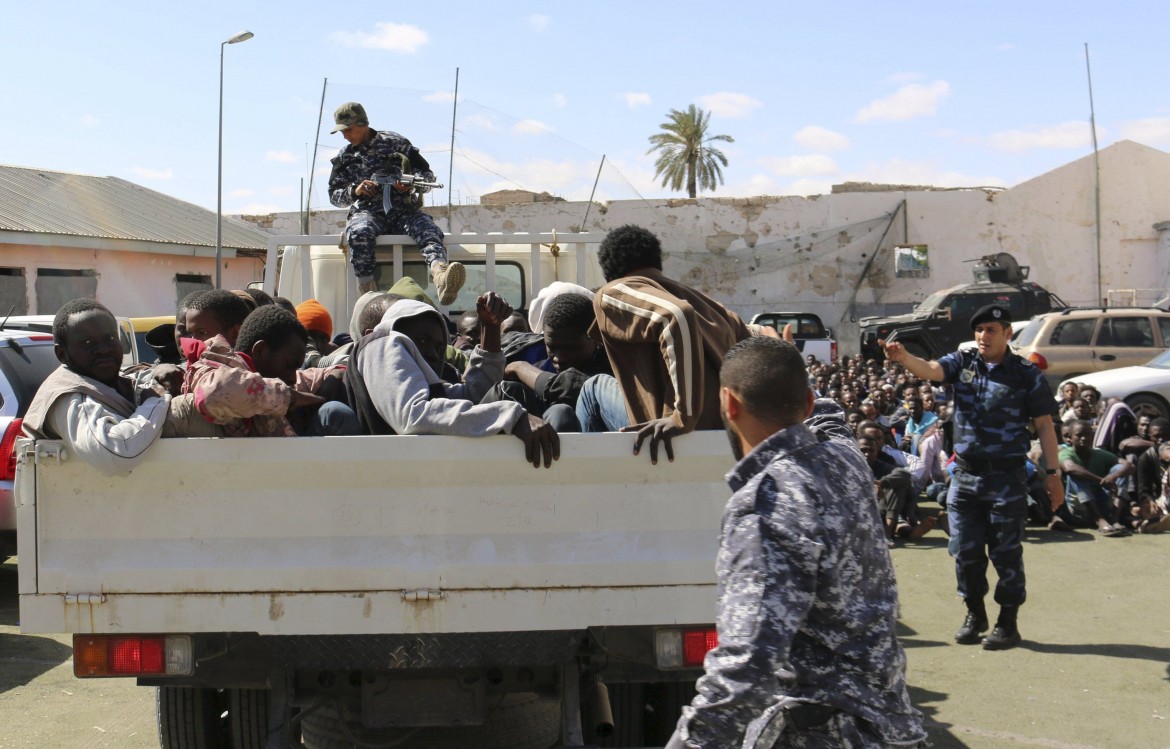Report
Migrants bring UN case against Italy for pushing them back to Libya
Italy’s ‘privatized push-back’ mechanism allowed them to skirt international asylum law by deputizing commercial ships to catch migrants and turn them over to the ‘Libyan Coast Guard.’ Now one refugee has filed a complaint in the UN.

The scheme was based on a simple idea. In order to circumvent the ban on indiscriminate rejection of refugees imposed by international law, Italy would entrust commercial vessels with the task of intervening to rescue the boats loaded with migrants, and, at the same time, would order them to coordinate with the Tripoli Coast Guard to bring them back to Libya, the country they had just fled. This plan for privatizing migrant rejections was uncovered by Forensic Oceanography, a research center at Goldsmith University in London (which termed the phenomenon “privatized push-back”), and it has resulted in a case being brought against Italy before the United Nations Human Rights Committee.
The case in question involves the commercial vessel Nivin. On Nov. 7, 2018, the ship, flying the Panamanian flag, received a request from the Italian National Maritime Coordination Centre to intervene to help a vessel with 93 migrants which was in difficulty in the Mediterranean.
Following the rescue, the Nivin was told to contact the Libyan Coast Guard, which in turn ordered it to return the migrants to Libya. Once the vessel reached the port of Misrata, however, the migrants refused to leave the ship, knowing they would be returned to the detention centers. Their resistance lasted for 10 days, at the end of which the Libyan security forces intervened with rubber bullets and tear gas to force them to surrender. Then, the migrants were once again imprisoned in the centers, where many were subjected to violence and torture.
The case was brought on behalf of a South Sudanese citizen, now resident in Malta, but who at the time of the events was among the migrants forced by the Libyans to disembark from the Nivin. The man told the volunteers from Médecins Sans Frontières who met with him in Malta that after being forcibly removed from the ship, he was “shot in the leg and was arbitrarily detained, interrogated, beaten, subjected to forced labor and denied treatment for months.”
The complaint to the United Nations was made by the Global Legal Action Network (GLAN), which accused the Italian state of bearing responsibility for these events. The rejections of the refugees that Italy caused to be sent back to Libya represented “illegal border enforcement,” GLAN wrote in a press release, in which they also stressed that the evidence shows the number of such cases of “privatized push-back” has increased significantly since June 2018, with states increasingly making use of nearby commercial ships to try to “circumvent their obligations toward refugees.”
Regarding the Nivin, the Forensic Oceanography report adds that while the operation was ostensibly coordinated by the Libyan Coast Guard, the Italian side was actually in charge, since the Libyans did not even have any means of communicating with the merchant vessel and had to relay their instructions via an Italian Navy ship at anchor in Tripoli: “Despite the impression of coordination between European actors and the LYCG, control and coordination of such operations remains constantly within the firm hands of European—and, in particular, Italian—actors.”
“Our legal complaint is targeting Italy’s attempt to abdicate its responsibilities by privatizing the push back of migrants to a nightmare environment in Libya,” wrote the Director of GLAN, Gearoid O’Cuinn, in a press release.
The complaint portrays the active role played by Italy in the rejection of migrants in Libya, which apparently goes far beyond the supply of patrol boats and technical assistance to the Libyan Coast Guard.
“Our country has done this, with our money,” stressed the former Mayor of Lampedusa, Pietro Bartolo, now an MEP. “What emerges from the report is the practice of using private commercial ships in cases where the Libyan Coast Guard was unable to intercept the people who were trying to get to Italy. I can only hope that those responsible will be identified as soon as possible.”
Originally published at https://ilmanifesto.it/migranti-mercantili-usati-per-i-respingimenti-italia-denunciata-allonu/ on 2019-12-19
